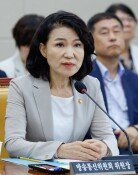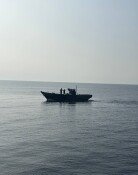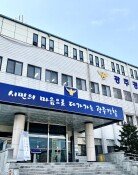Liberation Day addresses mark Korean history
Liberation Day addresses mark Korean history
Posted August. 08, 2000 21:11,
Every August 15, Liberation Day, presidents have addressed the nation on North Korea policies and other important state affairs. The speeches of past presidents reflect the major issues in modern Korean history.
When the Republic of Korea (ROK) was established in 1948, Rhee Syng-Man, the first president of Korea, declared the ROK the sole legitimate government on the peninsula. He urged North Korea to push ahead with postponed democratic elections and fill the 100 empty seats set aside for North Korean lawmakers in the National Assembly. In his last Liberation Day address in 1959, Pres. Rhee stated that reunification, the dearest wish of the South Korean people, was not far away, but called for the public to be patient. After coming to power in a coup d¡¯etat in 1979, President Park Chung-Hee announced that he would consider removing the barriers between the Koreas if North Korea renounced their goal of communizing the peninsula by force. He also suggested the two countries engage in a friendly economic development competition to see which nation was capable of building a better place for its people to live in.
The 1971 declaration of national identity based on "three basic principles" -- self-reliance in economy, defense and reunification -- as well as the 1974 rules of non-aggression, engagement in dialogue, cultural exchanges and common elections for both South and North Korea were all touched on in the Liberation Day presidential address.
On the other hand, President Chun Doo-Hwan did not make any particularly memorable announcements in his 1982 address except for a statement calling for an open-door policy toward North Korea. In 1988, Roh Tae-Woo suggested that the two Koreas hold summit talks, dismissing arguments over where the meeting should take place and which issues should be discussed. The offer was a follow-up to South Korea¡¯s July 7 declaration, which proclaimed that Seoul would adopt a peaceful and cooperative stance towards Pyongyang regardless of North Korea¡¯s policies. The following year, President Rho mentioned the three principles for reunification: independence, peace, and democracy.
To commemorate the 50th anniversary of liberation in 1995, President Kim Young-Sam proposed talks with North Korea to establish peace on the peninsula. He suggested three rules to establish a framework for peace that called for reunification led by the Koreas with the support of related nations, adhering to the ¡°basic inter-Korean agreement,¡± and a joint declaration against nuclear arms onthe peninsula. In his 1998 August 15 address, celebrating 50 years of the ROK, President Kim Dae-Jung set forth six important issues to be tackled, including corruption, graft, government control in the finance sector, and shady ties between politics and business. He also called for a permanent organization in charge of negotiations between South and North Korea for the easing of tensions and regional peace.







